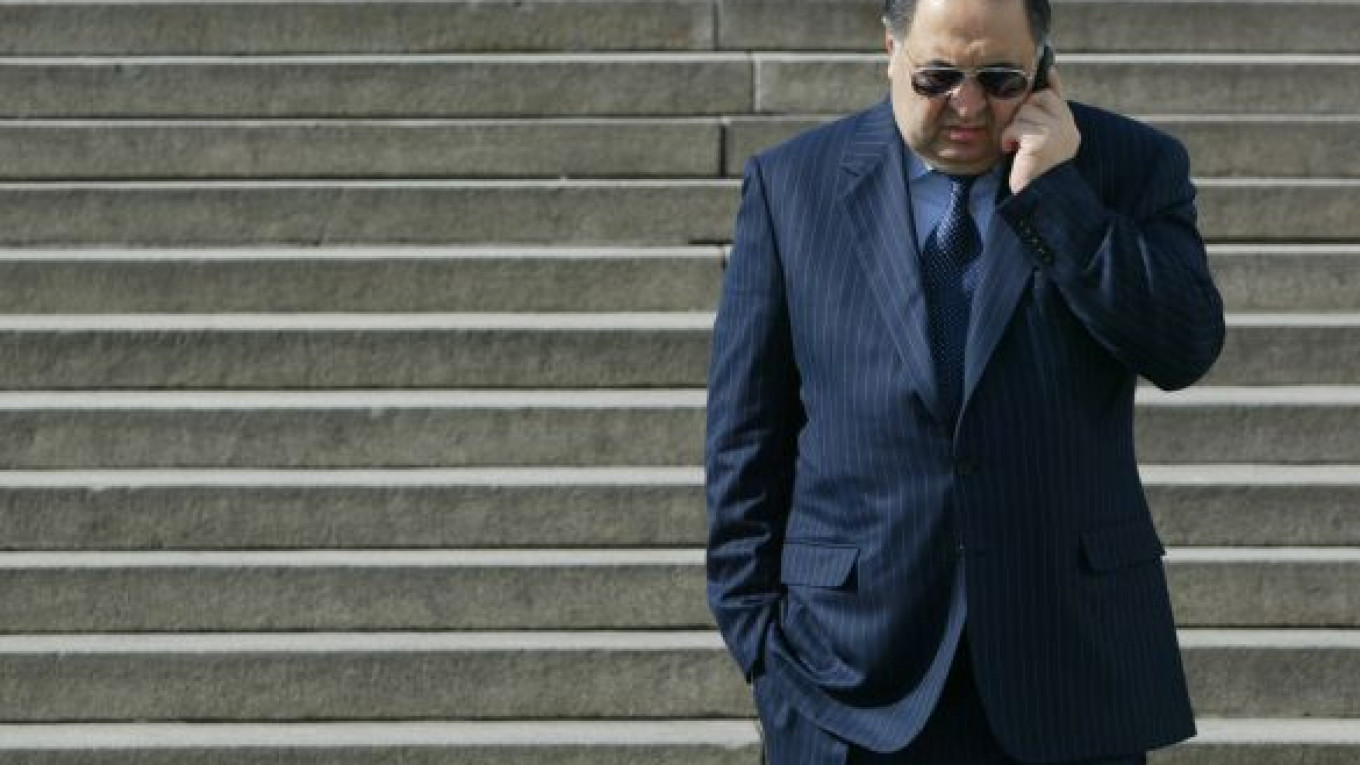Russia's richest man recognized the value of Facebook three years ago when he invested in the social-networking company and has now enjoyed a payday of about $1 billion, propelling him further ahead of Russia's oligarchs, who have largely stuck with oil and steel.
Alisher Usmanov, who topped Forbes magazine's annual list of Russia's richest investors in April, began his career making plastic bags and built his fortune in metals and mining. He is now worth more than $18 billion, up from $2.6 billion six years ago, according to Forbes.
Usmanov's technology-related bets have set him apart from his country's rivals, and 2012 looks set to be a particularly lucrative year. Along with the Facebook stake that values the firm at 10 times what it was worth when he invested three years ago, Usmanov plans to float MegaFon, the $20 billion telecoms firm he took control of last month.
"He has his fingers everywhere," said one Moscow-based financial source who said he knows Usmanov.
"With MegaFon and Facebook, it looks as though he'll be having a massive liquidity event. It's quite incredible. It could be that he creates a huge holding company, … or he could make a run at a big international company," the source said.
Usmanov, 58, born in the Soviet republic of Uzbekistan, also controls iron-ore miner Metalloinvest, Kommersant newspaper, television assets and has a stake in London football club Arsenal.
Unlike Russia's tycoons who won control of empires through the loans-for-share privatization schemes in the 1990s, Usmanov built up Metalloinvest through a series of acquisitions following a stint at the investment arm of Gazprom.
"He's a visionary person and saw some opportunities in the market — that's how he made his fortune," said a Moscow-based analyst who requested anonymity. "Of course he has luck, but he was in the very beginning in the Internet, and he was aggressive."
Usmanov is said to be close to the Kremlin, seen as crucial in Russia where business and politics are closely intertwined.
"He's quite well politically connected, probably one of the closest, that means a lot," said another Moscow-based analyst who also declined to be named. "It doesn't matter if you're visionary or not, if you're connected to top-level officials. That means if anything bad happens, he'll be helped."
Usmanov owns his Facebook stake through investments made by funds of Digital Sky Technologies, or DST, the investment firm of Russian social media investment star Yury Milner, and through Internet investor Mail.ru, which was spun out of DST.
Together, DST and Mail.ru owned Facebook shares valued at about $7 billion at the $38 opening price for Facebook's IPO on Friday, according to data in its prospectus.
Usmanov's total stake in Facebook was worth about $3 billion, a source familiar with the situation said. DSK and Mail.ru were expected to sell 35 percent of their holdings in the offering, according to data provided in the prospectus, which would bring Usmanov about $1 billion on the IPO.
"He's brilliant in many ways," said one person who knows Usmanov but who also requested anonymity. "He was probably one of the very few people in the world who at that time could have committed that capital to Internet investments."
The first investment was made by Mail.ru, which bought into Facebook in 2009, investing $200 million for a small stake that valued Facebook at $10 billion.
Subsequent investments were made by DST's funds and included $100 million later in 2009, which valued Facebook at $6.5 billion, while another in 2011 was made in tandem with Goldman Sachs in a $500 million placement.
"[Usmanov] trusted people like Yury Milner, [MegaFon CEO] Ivan Tavrin and a few other less well-known people, … young people who get this space," a third Moscow-based analyst said. "One thing that is key to this space is good people."
Usmanov said in a recent interview with The New York Times that he plans to use money raised from the Facebook IPO to invest in his other Russian business and pay down debt.
"The idea is they'd look to take a lot of the profits off the table, and in terms of where they want to invest in the future, it's probably things close to home, where they have a greater understanding," the analyst said.
Zuckerberg earned approximately $1.15 billion on the placement by selling 30.2 million shares. The Russian Facebook shareholders — DST Global and Mail.ru Group — made a total of nearly $2.5 billion. DST Global sold 45.66 million shares for $1.74 billion, and Mail.ru Group sold 19.6 million shares for $745 million, Gazeta.ru reported Saturday.
A Message from The Moscow Times:
Dear readers,
We are facing unprecedented challenges. Russia's Prosecutor General's Office has designated The Moscow Times as an "undesirable" organization, criminalizing our work and putting our staff at risk of prosecution. This follows our earlier unjust labeling as a "foreign agent."
These actions are direct attempts to silence independent journalism in Russia. The authorities claim our work "discredits the decisions of the Russian leadership." We see things differently: we strive to provide accurate, unbiased reporting on Russia.
We, the journalists of The Moscow Times, refuse to be silenced. But to continue our work, we need your help.
Your support, no matter how small, makes a world of difference. If you can, please support us monthly starting from just $2. It's quick to set up, and every contribution makes a significant impact.
By supporting The Moscow Times, you're defending open, independent journalism in the face of repression. Thank you for standing with us.
Remind me later.






